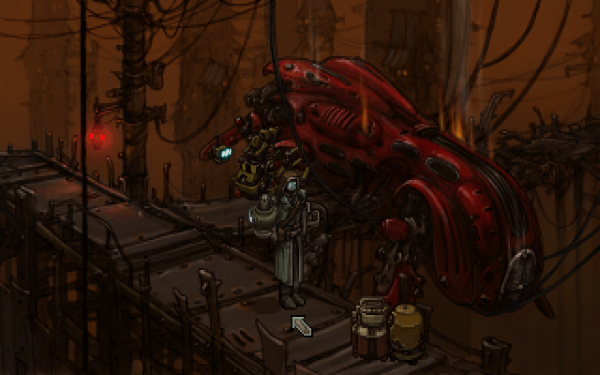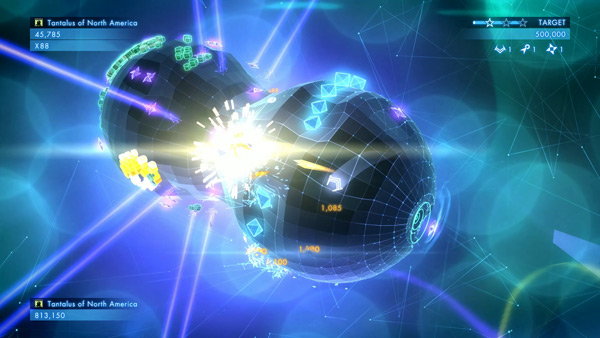
Primordia is an absolutely beautiful point and click adventure from Wadjet Eye Games. Besides the graphics, it has a lot going for it: a unique sci-fi setting, fun and interesting characters, great ambient music and a some nice voice acting performances.
The story is essentially an object quest that slowly reveals the back story of the world and the main character. This one is a bit more puzzle-centric than other Wadjet games I have played. That’s mostly a good thing, but there are a few moments that didn’t seem fair. Not that there was a lack of clues, but on a couple of occasions I had to revisit areas that where already explored and had deemed finished only to find out the *now* I could click that piece of scenery.
There are multiple endings and I think I got the “B+” ending. Fortunately, I had a save and could go back and see the “good” ending later. I am not terribly interested in ever replaying even 10/10 adventures despite the multiple ending gimmick (although I have gone back to all these games to listen to the commentary track).

The second in Wire’s 2000’s comeback EPs is slightly better than the first but generally it’s really just a continuation of the first EP. Send, their full-length from this period, compiles most of the best tracks from the first two Read & Burns.

Having finished the wonderful Blackwell series, I wanted to try some of Wadjet Eye’s other offerings. The Shivah was the company’s first foray into commercial games, but this isn’t the original version. This graphical overhaul was from 2013 and it visually matches the quality of the final Blackwell games.
The Shivah is most noteworthy for its unusual subject matter. How many other games have the player assuming the role of a mystery solving rabbi? Well, besides Crash Bandicoot 2: Cortext Strikes Back.
As far as adventure game mechanics go, this isn’t the best I’ve played. The puzzles mainly consist of clicking through dialogue trees to pick up on names and places that need to be searched out on the Internet. You’ll find yourself needing to take notes… like, actual pen-and-paper notes! I know, I know… like, who has time for that these days! However, the point of playing this isn’t for the challenge (although the final puzzle was infuriating at first, but a real a-ha moment when I realized what I needed to do). What shines here is the characters and story. The plot is not too deep, but I ended really hoping that Rabbi Stone would find the killer and, more importantly, re-discover his faith. Ew, did I just type that? Whatever, buy this game and give it a try.

The original Geometry Wars was one of the purest, most exhilarating gaming experiences of the post-arcade era. It combined the visuals of Tempest with the frantic, twin-stick shooting of Robotron 2084 to form a thoroughly modern point-driven shooter. The Wii exclusive sequel Galaxies added level variety and the great risk/reward mechanic of collecting geoms to increase your point multiplier. It’s still the game that I play the most on my Wii.
The third game in the series builds on the Galaxies formula but with the mind-blowing twist of moving the game grid onto curving non-euclidean surfaces. The result is nothing short of spectacular. You are still technically moving in two dimensions but now you need to navigate around spheres, cylinders and other irregular solids. These new non-euclidean mechanics don’t seem like they would work, but controlling your ship feels completely natural. As the grid begins to fill with hundreds of enemies, if you are having a good run, you start to feel like Rainman as you rack up the points. Like the other Geometry Wars installments the screen starts to look like an insane iTunes music visualizer that somehow you are able to navigate. Highly recommended.




